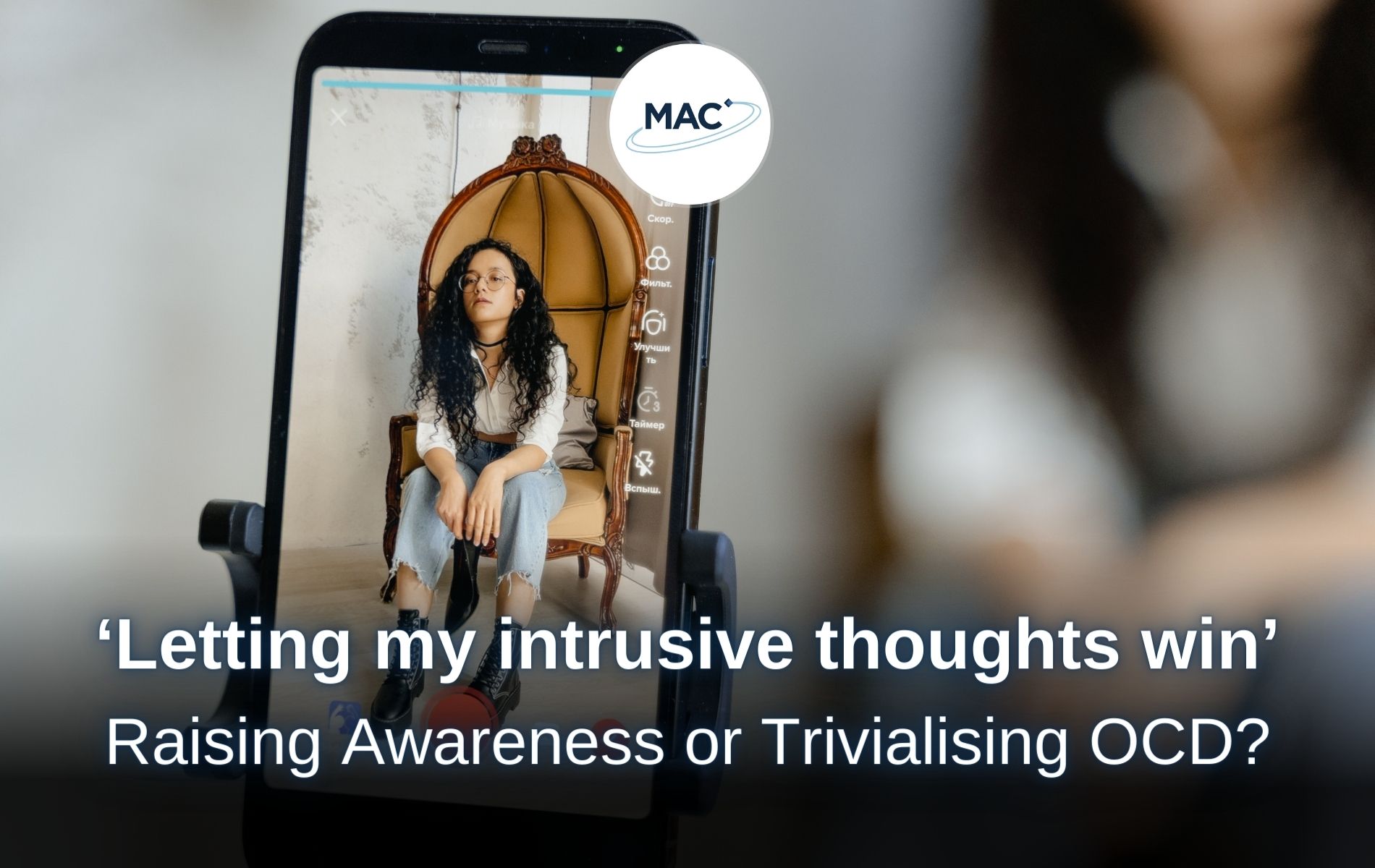What do you think of when you hear the phrase ‘intrusive thoughts’? For users of the popular social media platform TikTok, you might associate it with a popular trend rather than the mental health condition obsessive-compulsive disorder (OCD).
Recently, users have been posting TikTok videos under the hashtag #intrusivethoughts. These videos show people acting on their intrusive thoughts, with captions such as “letting my intrusive thoughts win.” While some people see this trend as a way to raise awareness about mental health, others worry that it could be trivialising OCD.
Obsessive-Compulsive Disorder (OCD) is a mental health condition characterised by intrusive, unwanted and repetitive thoughts, images, or urges (obsessions) that lead to repetitive behaviours or mental acts (compulsions) that help to temporarily reduce the anxiety associated with the obsessions.
It’s estimated that around 12 in every 1,000 people in the UK are affected by OCD: almost 750,000 people.
Intrusive thoughts can be associated with safety or risk, for example harming another person or fearing that they have already harmed someone without realising. Intrusive thoughts can also manifest as blasphemous thoughts or inappropriate thoughts about sex. Although these thoughts aren’t acted on, they can be extremely distressing and have a big impact on a person’s quality of life.
Some of the most popular TikTok videos that fall under the ‘intrusive thoughts’ trend feature people smashing eggs on the floor when cooking and eating cake icing straight out of a piping bag. These videos have millions of views and some of the most liked comments on the videos are highlighting that these actions are ‘impulsive thoughts’ as opposed to intrusive thoughts to avoid trivialising living with OCD.
In response to the popular trend, many TikTok users living with OCD are reappropriating the phrase ‘intrusive thoughts’ by raising awareness about what these thoughts really involve and how debilitating they can be.
One TikTok user, Made of Millions, a non-profit group committed to changing perceptions on mental health, posted a video about the issue surrounding the trend. In the video they say: “Everyone thinks that intrusive thoughts are like these weird, suppressed hidden desires and beliefs that you have. Which can get very dangerous because then when people talk about things like [harming others], then suddenly people have this idea [that intrusive thoughts are a desire]. Now suddenly everyone thinks that these people who have intrusive thoughts about harming people are dangerous criminals.”
The concern with the TikTok trend is that it may be trivialising the severity of OCD by presenting it as a relatable or trendy behaviour rather than a debilitating mental health disorder.
MAC Clinical Research are committed to improving the quality of life for people living with OCD through clinical trials and are currently investigating a medication that is thought to target a different signalling pathway in the brain to current OCD treatments, which may help to control obsessive or compulsive behaviours. With your participation, you may be able to contribute to scientific research which may lead to a new medicine to help people living with OCD.
The trial is taking place at MAC clinics in Lancashire, Greater Manchester, Merseyside, South Staffordshire, South Yorkshire, Teesside, and West Yorkshire.
To be eligible, you must: be between 18 and 65 years old; have had OCD, or OCD symptoms for at least 1 year; and feel that your current medication is not fully working*. Eligible participants will receive up to £490 for their time and commitment to the study, along with reasonable travel costs. If the treatment works you may be allowed to continue taking it (open label extension) for up to 48 weeks.
*Other eligibility criteria will apply.
For more information on how you can get involved, visit our OCD Research page.






